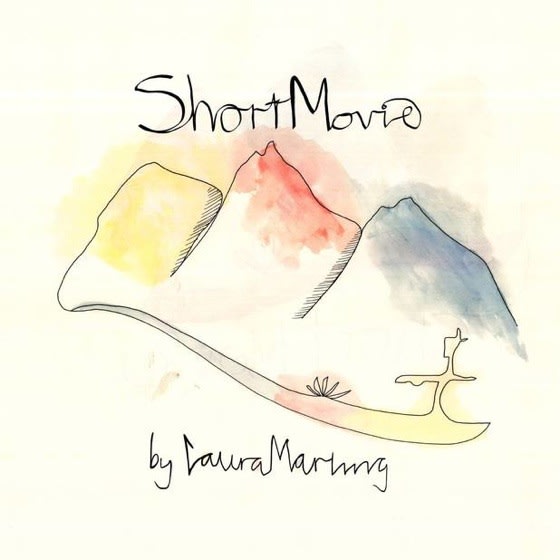Brit Award-winning singer-songwriter Laura Marling had to endure a false start followed by an unintended eight-month hiatus before writing and recording her fifth album, Short Movie, scrapping some of the songs that came before it and drawing from her experiences in Los Angeles, where she set up shop for two-and-a-half years (she's in the process of relocating back to the UK).
The resulting album sounds like a brave, at times combative, fresh start, not least because of the fact that Marling has revamped her relationship with the guitar by switching mostly to an electric (a semi-hollow body Gibson ES-335, borrowed from her dad).
Most striking are a handful of rock-oriented songs — many of which you can actually dance to — with snarling, heavy, tumbling and crackling guitar parts, strings and thickly textured drums, hand drums and percussion. For the most part, Marling's vocals more than keep pace, her singing deeper, more authoritative and biting than we've heard before, channelling Chrissie Hynde and Patti Smith rather than her usual foundation, Joni Mitchell. (There's still fluttery acoustic folk on songs like "Easy," however, and "Divine" is gentle, smooth, almost yogic).
Marling's love songs often feel urgent, frantic, and Short Movie is no exception. ("You must let me go before I get old," 25-year-old Marling sings on "Feel Your Love"). Her bold statements and revelations seem more grounded in real life observations this time around, less in archetypes (though there's some of that at work on atmospheric opener "Warrior"), whether she's drawing on her experience of being an insomniac at an Airbnb in New York during Hurricane Sandy (on the suitably dramatic "False Hope") or writing about the meeting between Chilean filmmaker Alejandro Jodorowsky and Reyna D'Assia, daughter of spiritual teacher G.I. Gurdjieff (the unlikely subject matter for the poppiest song on the record).
The best stuff on Short Movie sounds like it may have originated in the most painfully personal places: quiet electric guitar ambles alongside Marling's tentative, wry observations on "Walk Alone," while bluesy stream-of-consciousness "Strange" — compelling in its harshness — is an acoustic headbanger. The noisy title track, meanwhile, appears to be about shaking off mistakes.
(Ribbon)The resulting album sounds like a brave, at times combative, fresh start, not least because of the fact that Marling has revamped her relationship with the guitar by switching mostly to an electric (a semi-hollow body Gibson ES-335, borrowed from her dad).
Most striking are a handful of rock-oriented songs — many of which you can actually dance to — with snarling, heavy, tumbling and crackling guitar parts, strings and thickly textured drums, hand drums and percussion. For the most part, Marling's vocals more than keep pace, her singing deeper, more authoritative and biting than we've heard before, channelling Chrissie Hynde and Patti Smith rather than her usual foundation, Joni Mitchell. (There's still fluttery acoustic folk on songs like "Easy," however, and "Divine" is gentle, smooth, almost yogic).
Marling's love songs often feel urgent, frantic, and Short Movie is no exception. ("You must let me go before I get old," 25-year-old Marling sings on "Feel Your Love"). Her bold statements and revelations seem more grounded in real life observations this time around, less in archetypes (though there's some of that at work on atmospheric opener "Warrior"), whether she's drawing on her experience of being an insomniac at an Airbnb in New York during Hurricane Sandy (on the suitably dramatic "False Hope") or writing about the meeting between Chilean filmmaker Alejandro Jodorowsky and Reyna D'Assia, daughter of spiritual teacher G.I. Gurdjieff (the unlikely subject matter for the poppiest song on the record).
The best stuff on Short Movie sounds like it may have originated in the most painfully personal places: quiet electric guitar ambles alongside Marling's tentative, wry observations on "Walk Alone," while bluesy stream-of-consciousness "Strange" — compelling in its harshness — is an acoustic headbanger. The noisy title track, meanwhile, appears to be about shaking off mistakes.
